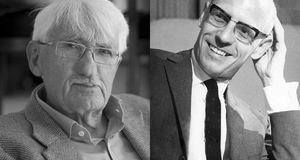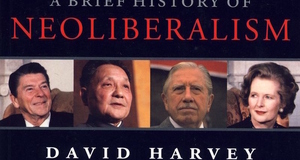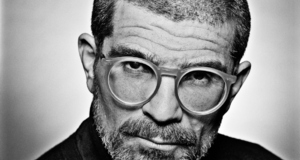The Contemporary Global Public Sphere as Reincarnation of Habermas' Bourgeois Society
By
2015, Vol. 7 No. 02 | pg. 1/2 | »
KEYWORDS:
Our contemporary global public sphere is made up of a tiny proportion of the world’s population. Affluent, exclusive, and concerned only with perpetuating its own economic advancement, this contemporary global public sphere is an anachronism that possesses all the constituent elements of the early eighteenth century bourgeois public sphere identified by Jürgen Habermas in his seminal work, “The Structural Transformation of the Global Sphere.” This is a particularly bold statement considering Habermas was heavily criticised for his theory, was believed to have been unhappy with his work, and explicitly states from the outset that his ideal of a public sphere is unique to that particular moment in history and “cannot be abstracted” from it.1 However history has a habit of repeating itself. When we examine the economic and social components constituting the bourgeois public sphere we can see they are applicable to a contemporary group of global elites who participate in their own rational critical discourse free from the manipulation of a commercialised media. The development of this group was born out of similar economic conditions as in the eighteenth century: market capitalism. Participants in today’s global sphere have formed a distinct collective in which, through a shared and vested interest in the global political economy, they are concerned primarily with the effects public policy has on its development. The social dynamics of this group are linked to their economic environment and parallel those of bourgeois society. This group is inclusive in principle, wherein participants come together as equals to engage in critical discourse with prestige awarded to the quality of argument instead of social status. However in reality participation requires access to an exclusive education system demanding a high degree of cultural capital, making it just as exclusive as eighteenth century bourgeois society. As Habermas described, this exclusive social group is a collective of private individuals who come together to form a global public. They participate in rational critical debate in a global discourse free from manipulation through elitist press mediums like the Financial Times where matters exclusive to their mutual interest, the global political economy, are critically debated at the expense of the rest of the world. As in Habermas’ paradigm there exist other public spheres around the world, but just as at the outset of our capitalist epoch, their views do not represent high society and can be dismissed as “plebeian” and subordinate to those backed by wealth. Today, the ideal social conditions described by Habermas to facilitate rational discourse have re-emerged on a macro level, constituting a global public sphere.These social conditions have their roots in the economic disparities created by free market capitalist systems, with our modern global economic system showing many similarities to that of the early capitalism of the seventeenth and eighteenth centuries. Craig Calhoun (1992) shows how alongside describing the bourgeois public sphere Habermas offers a profound account of the development of capitalism and the state, highlighting a gradual shift in state regulation of the economy from a liberal to administrative approach in Britain.2 Habermas believed this transition changed the nature of the public sphere. The sphere expanded with the creation of the welfare state reducing inequalities whilst increasing participation, this had a negative effect on the quality of discourse and the ideal public sphere was lost to history.3 In the last three decades we have witness a reversal in this economic trend with the abolishment of organised capital and a re-emergence of unregulated markets along with the financial inequalities and social deprivation such policies create. This regression back to a Dickensian self-regulated economy has taken place today on a global scale creating similar social conditions as before: an exclusive group in society has emerged who have a vested interest in the preservation and advancement of this neo-liberal ideology. It is this group who have formed a global sphere, situated over a worldwide geographical expanse, they cross national, ethnic and religious boundaries to form a homogeneous group with a vested, common interest in the preservation of the status quo. These recent economic developments are paralleled with Habermas’ theory of “the genesis of the Bourgeois Public Sphere.”4 Habermas argues that throughout the late seventeenth and into the eighteenth centuries a new social group emerged from the new “finance and trade capitalism” which had developed, this phenomenon demanded the establishment of “new commercial relationships” between private individuals over a broader geographical expanse.5 As these new markets expanded and long distance trade increased, the exchange in information between this group became ever more important. They began to communicate as equals who had a vested interest in the facilitation and expansion of this financial and trade capitalism.6 Habermas makes a profound sociological observation by demonstrating how this group was forming “horizontal” economic relationships that would go on to challenge the traditional “vertical” relationship of dominance by the state over the subject.7 This group now had a common interest in a new political economy and formed what Habermas calls the bourgeois public sphere, whose common goal was to challenge the state over private trade and economic concerns.8 Due to this new economic development the state’s decisions had become the “subject of public interest.”9 As the mercantilist markets grew this group needed assistance from the state to expand abroad. It is from these capitalist roots Habermas describes the emergence of a modern public authority administered by the state whose primary function was to facilitate this new found method of generating wealth.10 Global economic relationships of the same nature have developed today from a very similar assimilation of private financial interests. They are also “horizontal;” these relationships cross national borders and span the globe in search of increased profit and open markets. Whether an owner of a small business or multinational corporation, everyone in this new social group has an invested interest in the success of the global economy. Since the deregulation of the financial markets in the 1980s and the preponderance of neo-liberal economic policy across the world a global ideology has emerged once again, where just like in the mercantilist age, a state’s primary role is to facilitate the functioning of a free market. Indeed, to this day modern governments are still using a combination of diplomacy and military intervention to open up new markets, usually under the guise of democracy. This market now transcends national spheres and is of a global nature. There are now truly global institutions dedicated to ensuring its smooth application, the G8, IMF and World Bank to name a few. From the womb of this economic ideology we have witnessed the rebirth of a specific social group in society. It consists of private individuals who are tightly bound by horizontal economic ties and driven by a combined vested interest in the preservation of the global capitalist economy. This group has more in common with its peers who may be on the other side of the world than compatriots living in the same city. As in the early eighteenth century, economic conditions have once again created a particular type of global society containing a group of private individuals who have formed a new public. This group has formed a global sphere to represent its common financial interests, and just like in early eighteenth century Britain participation in this public sphere is restricted to a privileged group of private individuals. Pivotal to Habermas’ concept of a public sphere is its facilitation of rational-critical debate. This took place in the eighteenth century Salons and Coffee houses where everyone entered as equals, status was completely disregarded and only the strength of argument respected.11 In these establishments, “literature had to legitimate itself.”12 However the great paradox of Habermas’ bourgeois sphere is that it was only “inclusive in principle.”13 As Habermas concedes participation in this enlightened public discourse was conditioned to those who were, “propertied and educated.”14 Habermas’ public sphere actually constituted a very exclusive group of privileged individuals. It was only inclusive in principle, the qualifying criteria, wealth, ensuring it was only this new economically successful social group who were equipped with the resources to participate. Pierre Bourdieu wrote about how economic capital can manifest itself in the social world in the form of cultural and social capital, creating opportunities and barriers for different people.15 Bourdieu convincingly shows how economic capital is at the root of both cultural and social capital, both of which are effectively disguised forms economic capital.16 Cultural capital, the ability to access a high level of education, a pre-requisite of today’s and Habermas’ public spheres, is only attainable by those in society who have the economic means to access a quality and prolonged education.17 Bourdieu argues that cultural capital is “the best hidden form of hereditary transmission of capital” which has entrenched itself in today’s private education system.18 It is this cultural capital which makes Habarmas’ public sphere so exclusive, and its discreetness which deludes many including those in the group, into thinking the public sphere is an inclusive community. While in the bourgeois days of salons and coffee shops participation demanded literacy and knowledge, today’s public sphere likewise requires a similar degree of cultural capital for participation. Habermas himself concedes most people possessed nowhere near the wealth to acquire the “cultural goods” necessary to gain access to his bourgeois sphere.19 Craig Calhoun argues that to participate in the rational critical debate of the public sphere you had to be literate, educated and have access to journals, periodicals and books, what he calls “cultural products.”20 Accessibility to our global public sphere is strikingly similar. It is inclusive in principle: anyone can participate in the discourse, yet participation demands a high degree of cultural capital which can only be attained by the most affluent in a global society. Just as before people believe it to be inclusive but the requirement of cultural capital places heavy demands on participation. This capital gives people the contextual knowledge of the global political economy and the access to information required to participate in debate. This information or “cultural products” demanded for participation is still very difficult to obtain. Publications like the Financial Times and The Washington Post are just as restricted to a global population as eighteenth century periodicals and journals were to the British public. The same amount of cultural capital is still required for participation in today’s global public sphere as in the bourgeois days, our global sphere is just as exclusive. Bourdieu argues the “yield” or opportunities available from cultural capital are dependent on another form of capital we can see present in these public spheres of an educated elite. Social capital is another derivative of economic capital manifesting itself in the social relationships which give members of particular groups credibility and the support of other member’s collective capital; effectively it is being the member of an exclusive group.21 Bourdieu states these relationships can form over an “economic social space.”22 He tells us these groups are not consciously formed, whilst they look after and defend each other.23 Habermas identifies one of the defining characteristics of the bourgeois public sphere as the participation in critical discourse on topics of a “common concern”: the economy.24 This group was an educated elite who shared a social and economic interest of not only becoming more materially wealthy but of defending their position in society. Craig Calhoun states Habermas was well aware his bourgeois were influenced not just by a vested interest in defending itself from the state but also in maintaining its dominant position in society.25 We can see here another parallel between the bourgeois and global spheres, both are social groups bound by common economic concerns with a vested interest in the success of free-market capitalism. Our global public sphere, like the bourgeois, consists of an educated elite who believe they are inclusive and the power of argument amongst equals holds sway. This concept is highly idealistic and was as true then as it is now. A high degree of cultural capital, unattainable by most in a now global society is required for participation. Education is just another commodity which can only be acquired by the affluent in society. In Habermas’ account of the early public sphere, the expanding market was not only creating wealth and liberating some individuals, it was constantly creating new commodities. Another commodity freed by the market making it accessible to a select few in society was information.26 Habermas tells us how the communication of literature changed in the 1700s, literature for the first time had become commercialised with production shifting from patron to publisher.27 This liberation of information was a very important in the development of Habermas’ public sphere, and the communication of its rational critical debate. Although through this process information becomes more impartial it also becomes only accessible to those in possession of cultural and economic capital, those literate and with a disposable income to spend on acquiring such specialised information.Continued on Next Page » Suggested Reading from Inquiries Journal
Inquiries Journal provides undergraduate and graduate students around the world a platform for the wide dissemination of academic work over a range of core disciplines. Representing the work of students from hundreds of institutions around the globe, Inquiries Journal's large database of academic articles is completely free. Learn more | Blog | Submit Latest in Philosophy |


















